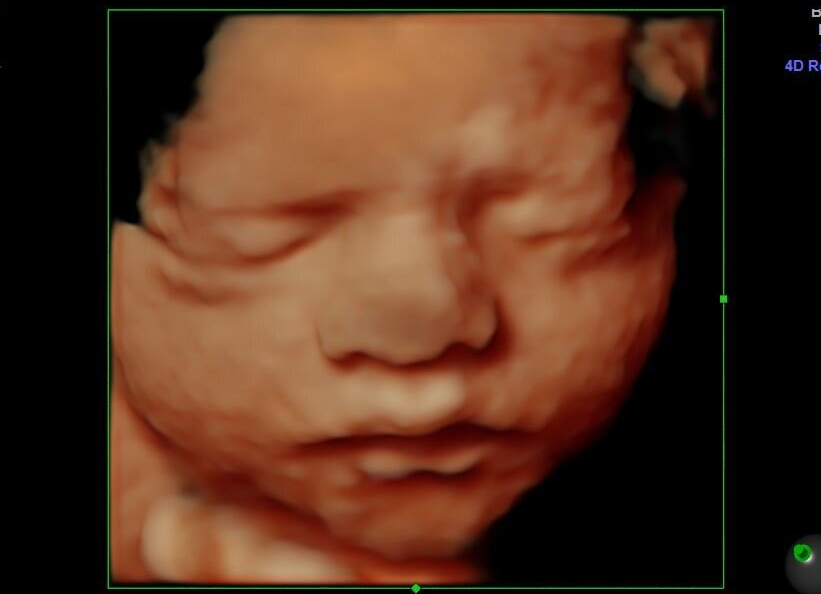On Monday, five days after the Wyoming Supreme Court heard oral arguments to decide whether District Judge Melissa Owens properly struck down the state’s protective “Life is a Human Right Act,” retired District Judge Thomas Campbell enjoined two state laws, one requiring abortion clinics to be licensed as ambulatory surgical centers and a second requiring ultrasounds and a 48-hour waiting period.
A spokesperson for Gov. Mark Gordon declined to comment on the ruling. “The state does not comment on active litigation,” the statement read.
Judge Campbell’s injunction will remain in place until his final ruling.
Judge Campbell was unpersuaded by the argument made earlier this month on behalf of House Bill 42 by Senior Assistant Attorney General John J. Woykovsky who defended the ultrasound law as a type of “informed consent.”
REACH PRO-LIFE PEOPLE WORLDWIDE! Advertise with LifeNews to reach hundreds of thousands of pro-life readers every week. Contact us today.
“Before a woman obtains a chemical abortion, she should have full information,” Woykovsky said. “And part of that information is an ability to visualize the fetus and the ability to hear the heartbeat.”
Reporting for Wyoming Public Radio, Chris Clements explained that Judge Campbell wrote
“The State Defendants assert that such practice could potentially identify ectopic pregnancies earlier; thus, generally promoting women’s health. However, the fact that only women seeking abortions would benefit, corrodes that argument. The same can be said for the mandatory forty-eight (48) waiting period provision. A period of reflection, as characterized by the State Defendants, serves no legitimate purpose and no evidence further supporting this argument is before the Court.”
Fundamentally, Campbell said that the state had failed to show that the clinic regulations and ultrasound requirement are “necessary, reasonable or advance a compelling government interest.”
Wyoming Health Access in Casper, the state’s only abortion clinic, and one of the plaintiffs, will resume surgical and chemical abortions.
At issue in Johnson v. Wyoming, which the state Supreme Court heard oral argument on last Wednesday, was the state’s law that safeguards unborn babies except when the woman’s life is at risk or in instances of rape and incest. A second law made Wyoming the first state after Dobbs toppled Roe to explicitly prohibit the use of medical [chemical] abortion.
In November 2024, Judge Melissa Owens, who reliably supports pro-abortion litigants, ruled that the abortion laws “will undermine the integrity of the medical profession by hamstringing the ability of physicians to provide evidence-based medicine to their patients,” according to Mead Gruver of the Associated Press.
“The crux” of Judge Owens’ ruling was that the 2012 constitutional amendment guarantees “the right of competent adults to make their own health care decisions,” and was at the heart of the argument made by the attorneys for those suing Wyoming’s laws. According to Gruver,
Wyoming Special Assistant Attorney General Jay Jerde argued in court that abortion is not health care. He also said that voters passed the amendment not to allow abortion but in response to the federal Affordable Care Act, and lawmakers may make “reasonable and necessary” restrictions under the amendment.
“This court is extremely deferential to the Legislature in terms of what laws are necessary,” Jerde told the five justices.
Maggie Mullen and Andrew Graham, writing for The Wyoming News, quoted and paraphrased Jerde at length:
“When you have an individual right that’s fundamental, when the state regulates, it has to have a compelling reason for doing so. And the restrictions imposed have to restrict the right to the minimum amount possible while still accomplishing the compelling purpose,” Jerde said.
But the right of individuals to make their own health care decisions, as specified in the state’s constitution, is not a fundamental right, Jerde said, because of how it is qualified by another section of the constitution that empowers the Legislature.
“The Legislature may determine reasonable and necessary restrictions on the rights granted under this section to protect the health and general welfare of the people or to accomplish the other purposes set forth in the Wyoming Constitution,” Section 38, Subsection C reads.
The breadth of what is “health care” was discussed often over the hour and a half long hearing.
“What about the slippery slope?” Justice John Fenn asked Peter Modlin.
“‘Health care decisions’ is a broad term, and if we determine that’s a fundamental right, it seems to me that there’s all kinds of — health care is a heavily regulated industry. It opens Pandora’s box on what is health care and what regulation can be made. Medical marijuana — I mean, you just go check down the list of so many different things that are reasonably regulated that this might turn that upside down.”
Modlin, who along with two other attorneys represents the plaintiffs, responded, “We would respectfully disagree.”
LifeNews.com Note: Dave Andrusko is the editor of National Right to Life News and an author and editor of several books on abortion topics. He frequently writes Today’s News and Views — an online opinion column on pro-life issues.
The post Wyoming Judge Blocks Pro-Life Laws, Abortion Center Will Resume Killing Babies appeared first on LifeNews.com.

